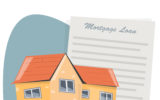In case you make an error while purchasing any kind of insurance it can prove to be costly. This is more applicable when it comes to home insurance. In fact, home happens to be the most precious asset for most of the people out there. It is sensible to choose the policy meticulously to avoid paying huge premiums and receive only minimal gains in return. Here, we have enlisted some of the common mistakes to avoid while buying a home insurance policy.
1. Not succeeding to shop around
You will come across many insurance providers providing a wide range of policies differing widely when it comes to premiums. This implies that your policy premium for any product with one company could be higher than that of the other. Consequently, it will be a prudent idea to explore a number of carriers for getting the best home insurance policy. Go for those carriers that provide you with quality coverage at a comfortable price. Moreover, it is sensible to shop for the home insurance plan yearly for getting a better deal. Price must not be the sole factor to consider whether your policy is the best one. As a matter of fact, even some inexpensive plan might prove to be a total waste of money.
2. Sticking with only the basics
It is simple to believe that the basic insurance policy will cover you from every type of hazard out there. Furthermore, these policies will safeguard your house from the majority of them to a certain extent. However, they are not going to protect you from events such as natural calamities. Consequently, it will be a good idea to consider your overall situation prior to signing on the dotted lines. If you reside in areas that have a greater risk of being devastated by natural catastrophes, try increasing the insurance policy. For this, include certain riders which can safeguard you plus your home in a better manner in such situations.
3. Underinsuring your abode
Selecting inexact coverage might come in various forms confusing the replacement value of your abode with its market value. In fact, you might even end up overestimating or underestimating the amounts of content coverage needed by you. Most folks think of dwelling coverage while considering home insurance. It is the part of a policy that will cover in case your house becomes damaged because of natural calamities. You will require adequate dwelling coverage for rebuilding your home from the beginning. This amount might differ considerably from exactly how much you owe on the house or its market value. Therefore, you might make use of a home insurance calculator for making a more sensible decision. This will help you to figure out how much dwelling coverage you need.
4. Not updating the policy
For saving on premiums, folks usually do not inform their insurer regarding the innovative modifications they made in their residence. As a result, this might expose them to greater risks in the upcoming days. Inform your insurer regarding every single alteration you make in your home. In fact, this happens to be one of those circumstances when you can always bother the insurance agent. He can tell you precisely the impact when you purchased a painting or some equipment can have on the premium.
5. Assuming that a basic insurance policy will be covering sewerage or mold issues
In most cases, folks presume that the basic insurance policy will also be covering mold or sewerage backup issues. However, the sad thing is that most of these policies do not offer any protection in these types of situations. It might the fact be that you are not sanguine whether the home insurance policy covers all these issues. In that case, it will be sensible to call your agent or broker by picking up the phone. In case he asserts that your policy does not include these, ask whether the business provides them with some riders. And if it is so, then how much you need to pay for that additional coverage? Here, we like to inform you that policies with mold protection might prove to be rather costly. However, you can nevertheless go for the home insurance policy provided you happen to reside in a humid area.







